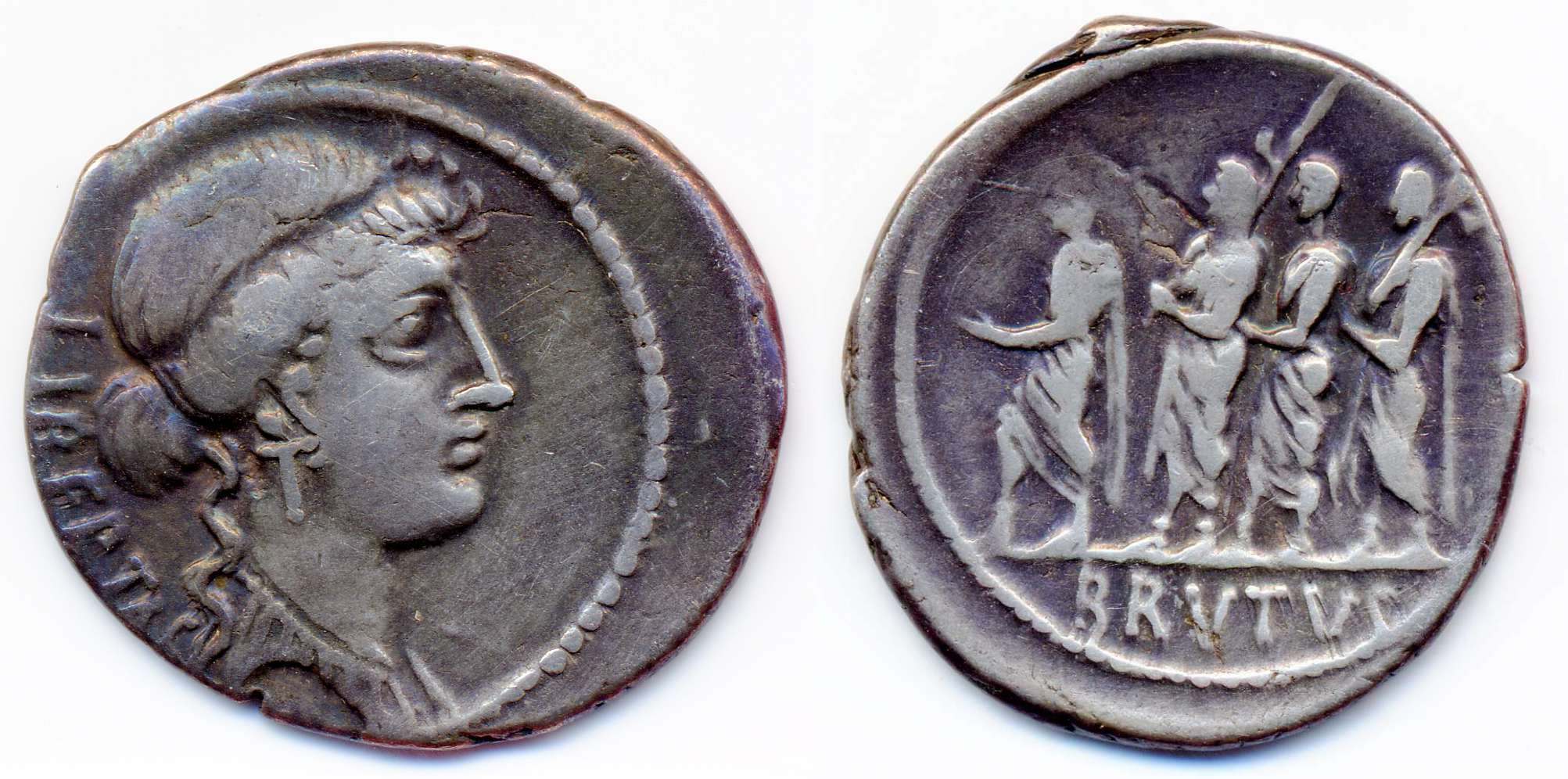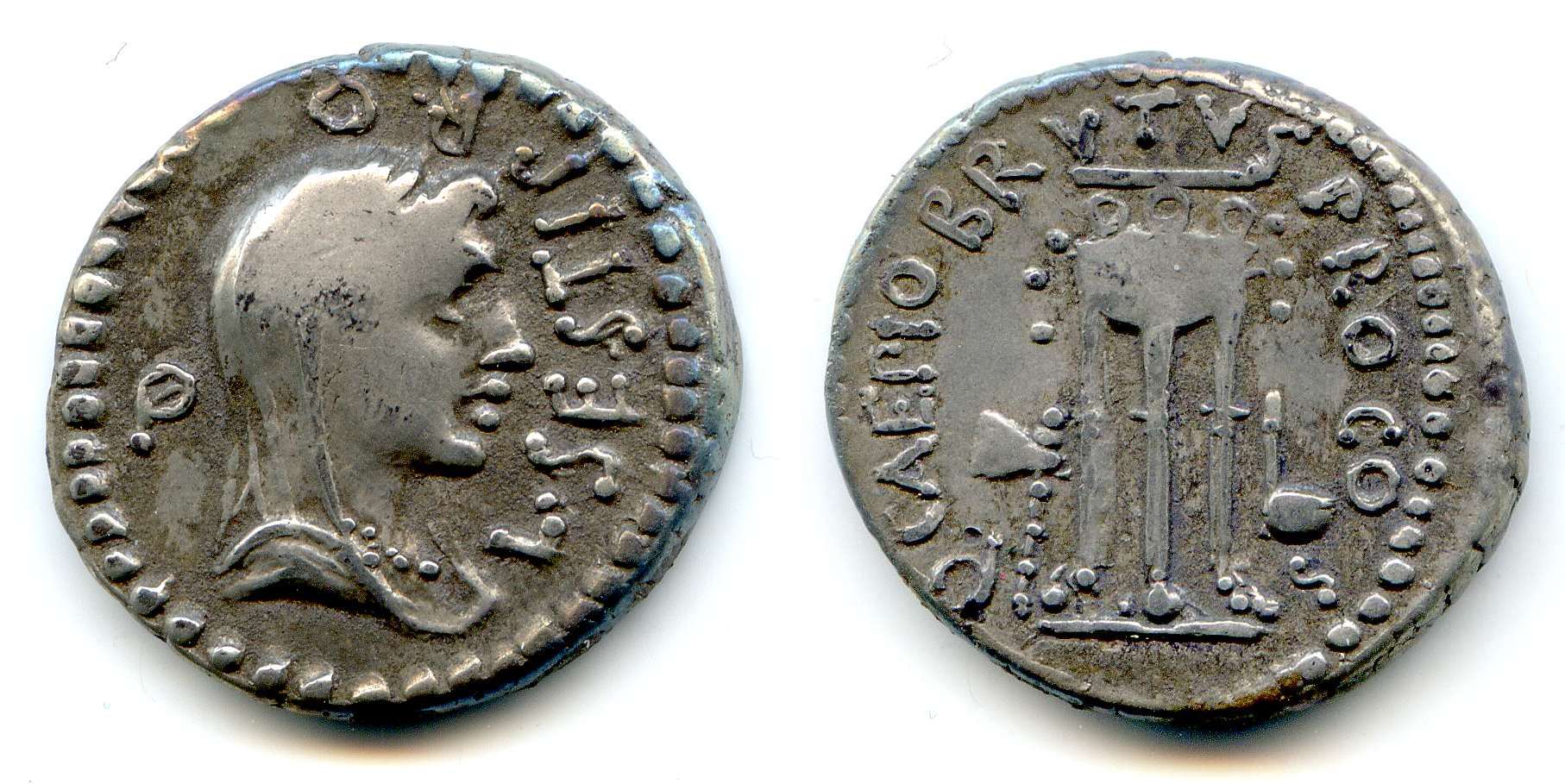Marcus Junius Brutus
Roman Statesman, Assassin of Julius Caesar, d. 42 BC

Silver Denarius, 20 mm, 3.9 grams
O: Head of Libertas, personification of Liberty.
R: L. Junius Brutus (second from the right) walking in precession, led by
accensus and flanked by lictors.
Struck in 54 BC in Rome.
In late Republican Rome, moneyers were appointed yearly and often honored their
families on the coin designs. M. Junius Brutus served as moneyer in 54
BC. On his coins, he affirms his commitment to liberty on the
obverse. On the reverse, he commemorates a distant ancestor.
L. Junius Brutus was legendary for expelling the last of the kings to rule Rome
and establishing the Republic in 509 BC.

Silver Denarius, 17 mm, 3.8 grams
O: Veiled head of Libertas, personification of Liberty.
R: Tripod, Axe and Simpulum.
Struck in the Summer of 42 BC at a military mint in the East, traveling with
Brutus and Cassius.
Marcus Junius Brutus, also known as Quintus Caepio Brutus, achieved fame as a reluctant leader in the assassination of Julius Caesar .
On both his father's and mother's sides, Brutus claimed descent from early Roman statesman legendary for their fights against tyrants and kings and in favor of the Republic. His mother, Servilia, was a half-sister of Cato the Younger and is believed to have had a long affair with Caesar. Indeed, Caesar may have regarded Brutus as his natural son.
In the complex politics of Rome, Julius Caesar viewed Brutus as his protégé. Despite good treatment from Caesar, Brutus supported Pompey in the civil war between Caesar and Pompey. The decision was even more striking as Pompey had killed Brutus' father. Apparently, Brutus had made his decision in favor of Pompey in support of the Republic and against Caesar's relentless consolidation of power. After the defeat of Pompey, Caesar pardoned Brutus and treated him well, making him governor of Cisalpine Gaul in 46 and the top praetor in Rome in 44 BC.
Nonetheless, Brutus joined the conspiracy against Caesar. His motives, presumably, were to attempt to save the Republic from Caesar's tyranny and royal aspirations.
Julius Caesar was murdered on the Ides of March, 44 BC. The
conspirators had no realistic follow-up plan . Defeated by Mark Antony and Octavian, Brutus
committed suicide following the battle of Philippi in 42 BC.
Return to Main Page